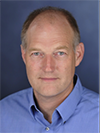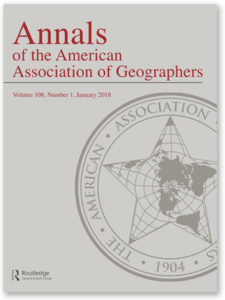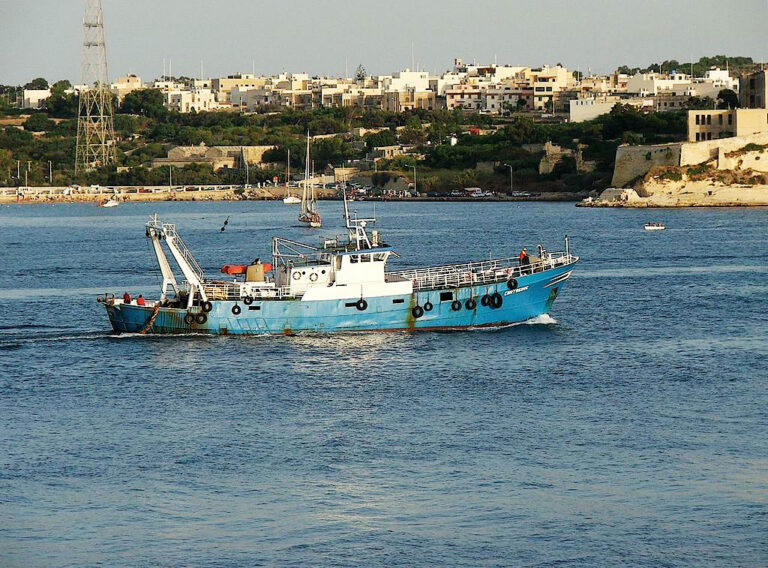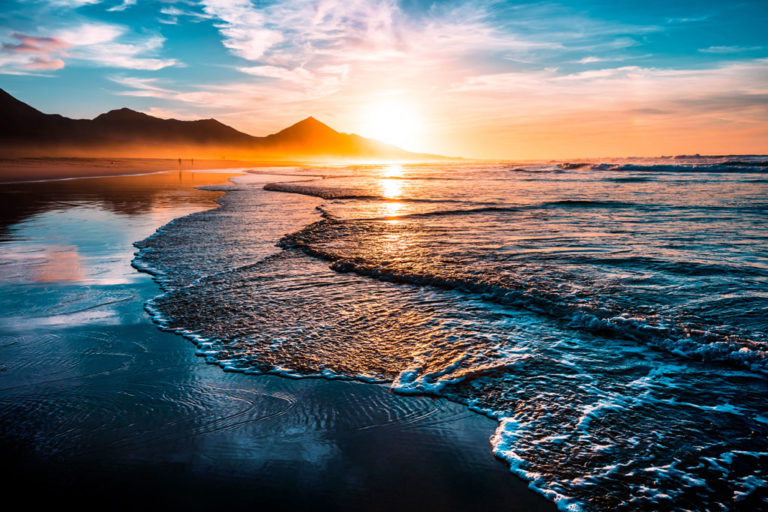Symposium on Physical Geography Features Experts on Environmental Reconstruction
A special event at this year’s AAG annual meeting is the all-day Symposium on Physical Geography, scheduled for Thursday, April 23. The overall goal of the symposium is to facilitate and enhance dialog on emerging developments, challenges, and approaches related to physical geography. Morning oral sessions, organized around the theme “Environmental Reconstruction – A Nexus of Biogeography, Climatology and Geomorphology”, are followed in the afternoon by an extended poster session with over 200 posters on display, and a networking reception and Happy Hour from 4:30 p.m. – 7:30 p.m. All AAG attendees are invited to participate in the Symposium on Physical Geography. Please contact organizers Julie Winkler (winkler [at] msu [dot] edu), Carol Harden (charden [at] utk [dot] edu), or Richard Marston (rmarston [at] ksu [dot] edu) with questions.
The invited speakers for the morning oral sessions are leading experts on environmental reconstruction, whose expertise ranges from the study of past climates, landscapes, and biological systems to the reclamation of altered environments. The speakers and the titles of their presentations are:
 Johannes J. Feddema: Modeling the Anthropocene: Potential contributions from Physical Geographers
Johannes J. Feddema: Modeling the Anthropocene: Potential contributions from Physical Geographers
Dr. Feddema is professor and chair of the Geography Department at the University of Kansas. He obtained a Ph.D. degree in Climatology from the University of Delaware and his research interest is primarily in studying the processes by which anthropogenic actions affect climate. His current research combines remote sensing, GIS, and modeling to develop datasets to simulate land cover change and other human processes at the Earth’s surface in the National Center for Atmospheric Research (NCAR) Community Climate System Model (CCSM). He has published in a variety of journals including Climate Research, Climate Dynamics, Climatic Change and Science, and was a contributing author to the third and fourth IPCC reports.
 Melinda D. Daniels: Reconstructing River and Watershed Restoration: Physical Geography and a New Restoration Design Science
Melinda D. Daniels: Reconstructing River and Watershed Restoration: Physical Geography and a New Restoration Design Science
Dr. Daniels holds a B.S. in Natural Resources from Cornell University, a Masters of Research in Environmental Science from University College of London, England, and a Ph.D. in Physical Geography from the University of Illinois at Urbana-Champaign. Her specialties include fluvial geomorphology and river restoration science and policy, with emphases on in-channel flow hydraulics, large river planform dynamics, human impacts on hydrologic and geomorphic regimes, river restoration assessment, and the interconnections between hydro-geomorphologic and ecological processes in stream ecosystems. She has studied river systems in the Great Plains, Rocky Mountains, Midwest and the Northeast. Her current research program focuses on legacy land use disturbances, effects of grassland grazing and burning treatments on stream morphology and sediment transport dynamics, the effects of forest loss on woody debris dynamics, modeling impacts of climate change on coupled human-watershed systems, and long term research on the hydro-ecological effects of watershed restoration. Before joining the Stroud Water Research Center, she was a tenured professor at Kansas State University.
 Markus Stoffel: Mass movements from periglacial environments — Studying tree rings to put the impacts of current climate warming into perspective
Markus Stoffel: Mass movements from periglacial environments — Studying tree rings to put the impacts of current climate warming into perspective
Dr. Stoffel is a Professor of Geomorphology and currently works at the Institute for Environmental Sciences (ISE), University of Geneva and at the Institute of Geological Sciences, University of Berne (Switzerland), where he also directs dendrolab.ch. His research interests are in hydrogeomorphic and earth-surface processes, large volcanic eruptions, climate change impacts, biodiversity, tree physiology, and dendroecology. Books that he has edited or co-edited include Tree Rings and Natural Hazards (Springer 2010), Tracking Torrential Processes on Fans and Cones (Springer, 2012), and Treatise on Geomorphology: Mountain and Hillslope Geomorphology (Elsevier, 2013). Professor Stoffel holds B.Sc. and M.Sc. degrees in Physical Geography, a M.Sc. degree in Media and Communication Sciences, and a Ph.D. in Dendrogeomorphology from the University of Fribourg (Switzerland), as well as a habilitation thesis degree (venia docendi) from the University of Berne (Switzerland). In 2010, he received an honorary professorship (Prof. honoris causa) in Physical Geography at Babeş-Bolyai University (Romania).
 Robert A. Washington-Allen: Retrospective Analysis of U.S. Dryland Carbon Dynamics
Robert A. Washington-Allen: Retrospective Analysis of U.S. Dryland Carbon Dynamics
Dr. Washington-Allen is an assistant professor in the Department of Geography at the University of Tennessee. He has an abiding interest in pastoralists and the sustainability of drylands. His remote sensing-based drylands research has taken him around the world, most recently to southern Ethiopia and Jordan, with side excursions to Tropical Cloud Forests and the Paramo peatlands of Colombia. Dr. Washington-Allen currently serves as the Chair of Remote Sensing & GIS Committee of the Society for Range Management and on the U.S. Global Change Research Program National Climate Assessment’s Grasslands, Rangelands, & Pastures Indicators Technical Team. He has contributed to the U.S. Forest Service’s 2010 Resource Planning Act (RPA) Assessments: A synoptic review of U.S. rangelands: A technical document supporting the Forest Service 2010 RPA Assessment and Future of America’s Forest, and Rangelands: Forest Service 2010 Resources Planning Act Assessment.
 Kristine DeLong: Reconstructing Tropical Climate Variability from Massive Corals
Kristine DeLong: Reconstructing Tropical Climate Variability from Massive Corals
Dr. Kristine DeLong is an Assistant Professor in the Department of Geography and Anthropology at Louisiana State University. She received her Ph.D. in Marine Science from the University of South Florida and completed post-doctoral research at the U.S. Geological Survey in St. Petersburg, FL. Professor DeLong’s research is focused on climate change of the past, primarily in the subtropics to tropical regions for the past 120,000 years. She is also concerned with the refinement, fidelity, and data analysis methods used in paleoclimate reconstructions. She has participated in international projects including the Integrated Ocean Drilling Program (IODP), PAGES 2K, and the Marine Annually Resolved Proxy Archives (MARPA), as well as the South Central Climate Science Center funded by the U.S. Department of the Interior.
 Bette L. Otto-Bliesner: African Rainfall and Greenhouse Gases: A Lesson from the Past
Bette L. Otto-Bliesner: African Rainfall and Greenhouse Gases: A Lesson from the Past
Dr. Bette Otto-Bliesner is a Senior Scientist at the National Center for Atmospheric Research (NCAR) in Boulder, Colorado, and serves as head of NCAR’s Paleoclimate Modeling Program. As a nationally and internationally recognized expert in using computer-based models of Earth’s climate system to investigate past climate change and climate variability across a wide range of time scales, she has been involved in the IPCC Working Group I reports since the Third Assessment, and was a Lead Author for the IPCC AR4 and AR5. She served as the Chair of the International Geosphere-Biosphere Programme (IGBP) Past Global Changes (PAGES) and is currently Co-chair of the Community Earth System Model (CESM) Paleoclimate Working Group. She is a member of the Scientific Steering Committee for the Paleoclimate Modeling Intercomparison Project (PMIP), the group that coordinates international climate model experiments addressing past climate change relevant to understanding future change. She was born in Chicago and received her Ph.D. in Meteorology from the University of Wisconsin-Madison.


